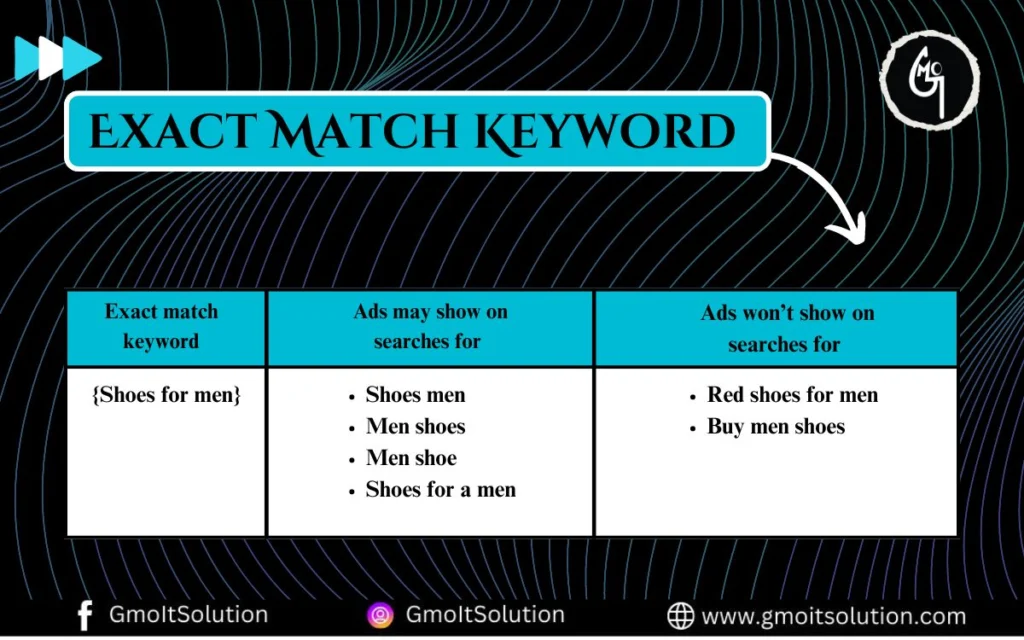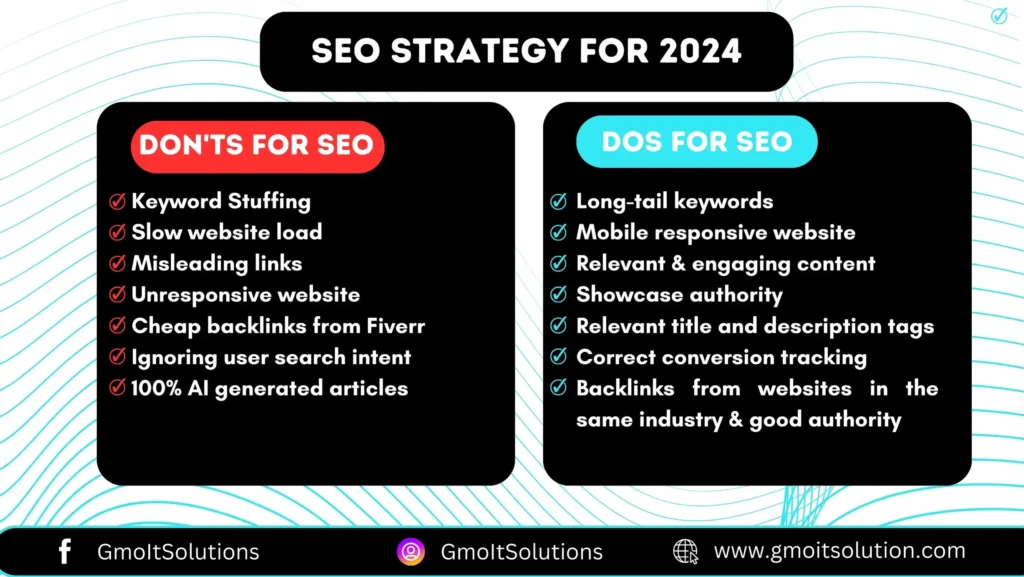Understanding Exact Match Keywords
In the competitive search engine optimization marketplace, the right keyword strategy can make all the difference (SEO). When it comes to targeting particular age groups, one of the best methods for organizations is to use exact-match keywords. This post will explain exact match keywords, their benefits over phrase and broad match keyword match types, and walk you through using them correctly in your SEO strategy. prepared to benefit from it.
- What Are Exact Match Keywords?
- Exact Match vs Phrase Match vs Broad Match
- Benefits of Using Exact Match Keywords
- When to Use Exact Match Keywords
- How Google Handles Exact Match Keywords
- How to Optimize Your SEO Strategy with Exact Match Keywords
- Phrase Match vs Exact Match: Which Should You Choose?
- Conclusion
- Faq's
What Are Exact Match Keywords?
Exact match keywords are targeted search terms that allow your advertisement or content to show up only when the inquiry exactly matches the targeted keyword. For example, if your keyword is “blue running shoes,” only the exact keyword “blue running shoes,” without any additional words, will end up in a showing of your advertisement or webpage.
Because it closely aligns with user intent, this highly focused strategy can drive higher-quality traffic to your website by making sure people who are specifically looking for what you provide are seeing your ads in search results.
Exact Match vs Phrase Match vs Broad Match
When developing a keyword strategy, it’s essential to understand the difference between broad match, phrase match, and exact match keywords
Broad Match
The most flexible match type is this one. Even if the search query doesn’t contain your keyword at all, Google will still show your advertisement or content for that term. For example, advertisements for “athletic footwear” or “sports sneakers” may appear when a broad match keyword for “running shoes” is used.
Phrase Match
Phrase match keywords focus on searches that include your identical keyword together with any words that may come before or after it. When searching for “blue running shoes,” for example, your keyword will come up when people type in terms like “best blue running shoes” or “buy blue running shoes online.”
Exact Match
As said before, exact match keywords limit the visibility of your advertisement or content to times when the search query exactly matches your keyword. When it comes to control, it is the most restricted when compared with wide and phrase-match keywords.
Understanding the differences between these match kinds helps marketers enhance their keyword-targeted strategies and achieve a balance between quality and availability.
Benefits of Using Exact Match Keywords
Higher Conversion Rates
You may improve your chances of attracting users into customers by focusing on people who are specifically looking for the good or service you provide.
Cost Efficiency
While broad or phrase-matched keywords may provide greater impressions than exact-match keywords, the quality of traffic resulting from exact-match keywords can often be higher, meaning that the ROI is better.
Better Ad Relevance
Exact match keywords can lead to more relevant ads or content for the searcher, which can increase engagement and increase click-through rates (CTR).
When to Use Exact Match Keywords
Exact match keywords are ideal when:
- You have a specific product or service and want to reach a very targeted audience.
- You want to control your budget by limiting your ad spend to only the most relevant searches.
- Improving conversions is more important than increasing traffic.
If you sell custom-made leather jackets, for example, using exact match keywords like “buy custom leather jackets” will make sure that customers who are particularly looking for that product see your advertisement or article, compared to those who are quietly searching for leather jackets of any kind.
How Google Handles Exact Match Keywords
Over time, Google’s interpretation of exact match keywords has changed. When Google first introduced exact match search, it meant that only searches that exactly matched your selected keyword would display your ad or content. But Google Exact Match has evolved over the past few years, now taking into account variations including substitutes, plural as well as singular versions, and spelling errors.
If your keyword is “buy custom shoes,” for example, your advertisement may show up for queries like “buy custom shoe” or “custom shoes buy.” This broader understanding keeps your targeting focused while ensures you don’t lose out on important visitors.
How to Optimize Your SEO Strategy with Exact Match Keywords
To get the most out of exact match keywords in your search engine optimization plan
Research Exact Matches
Use resources such as Moz’s Keyword Explorer or Google Keyword Planner to find important exact matches for your niche. This will direct your targeting and help you understand what users are searching for.
Create Targeted Content
Make sure the material you are targeting is highly relevant to the specific keywords you are using. If you use the keyword “best running shoes for men,” for example, your material should only discuss running shoes made for men and not stray from the subject.
Monitor and Adjust
Search engine optimization is not a one-time event. To increase the success of your campaign, regularly review the data to see how your exact match keywords are doing and make any necessary improvements.
Phrase Match vs Exact Match: Which Should You Choose?
Depending on the goals you have, you can choose between phrase match vs exact match:
- When you want to target extremely specific searches and ensure the maximum relevance, use exact match keywords.
- If you want to reach a somewhat larger audience while still having some control over the search keywords that show your advertisements, use phrase match.
Conclusion
Using exact-match keywords in your SEO plan will help you reach a more relevant audience and significantly improve the specificity of your targeting. It may not have the same reach as other match kinds, such as phrase match or broad match, but it attracts users who are more likely to convert, which makes it an important tool for any marketer’s toolbox.
Understanding the complex nature of exact match keywords can help small business owners wanting to improve their Google Ads campaigns or SEO experts seeking to optimize content for search engines to get better results from their marketing efforts. Recall that sometimes calling the right people is more important than reaching the most people.




Pingback: Mastering Keyword Research Strategies for Effective SEO
Pingback: Broad Match Keywords: Benefits & Usage in Google Ads